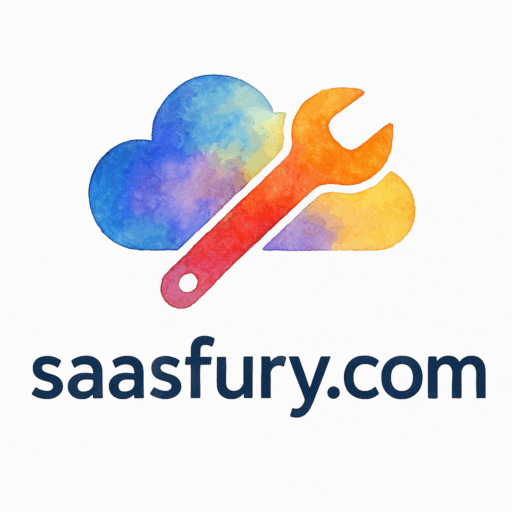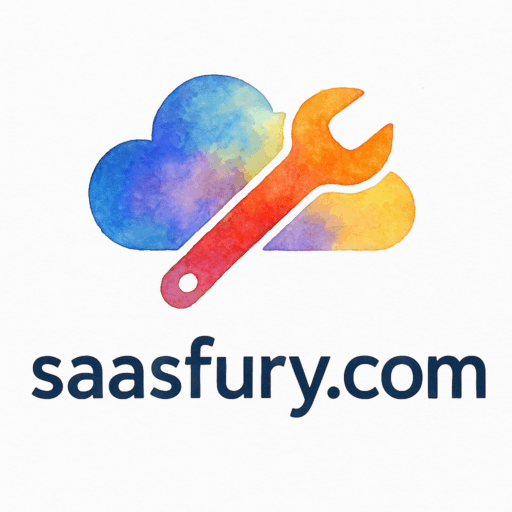Introduction to SaaS in POS Management
Point-of-Sale (POS) systems are no longer just about ringing up sales. Today, businesses need tools that integrate sales, inventory, analytics, and customer engagement. That’s where SaaS solutions step in. By shifting POS management to the cloud, companies enjoy flexibility, security, and real-time insights.
Why Businesses Need SaaS Tools for Point-of-Sale
Running a modern business without an effective POS system is like driving blindfolded. Let’s explore why SaaS tools make all the difference:
Streamlined Transactions
Speed matters. Customers expect lightning-fast checkouts. SaaS POS systems allow seamless payment processing, digital receipts, and multiple payment options—just like the hospitality industry uses to deliver better guest experiences.
Centralized Data and Reporting
Instead of juggling spreadsheets, SaaS consolidates data into a single dashboard. From sales history to stock levels, everything is a click away—an essential feature for retail and e-commerce businesses.

Flexibility Across Devices
Run your POS on tablets, mobile phones, or desktops. Whether you’re in a retail shop or managing a pop-up event, SaaS keeps you connected.
Enhanced Customer Experience
Loyalty programs, personalized discounts, and omnichannel integration all help build stronger customer relationships—similar to what marketing agencies rely on for customer retention.
Key Features to Look for in POS SaaS Tools
Cloud Integration
A true SaaS POS runs on the cloud, meaning data syncs across locations instantly. This mirrors the flexibility of online education tools, where users can access resources anytime, anywhere.
Multi-Store & Omnichannel Capabilities
Retailers and restaurants often expand. SaaS makes scaling smooth by managing multiple outlets under one platform—this is why omnichannel strategies are a big trend in retail.
Real-Time Analytics
Sales trends, peak hours, and customer behaviors—analytics help you make smarter decisions on the fly.
Security & Compliance
With sensitive customer data at stake, security features like encryption and PCI compliance are non-negotiable, especially in sectors like healthcare SaaS.
Top 5 SaaS Tool Recommendations for Point-of-Sale Management
1. Square POS
Best For Small to Medium Retailers
Square offers a simple yet powerful POS solution. From card readers to inventory management, it’s user-friendly and affordable. Its robust integrations make it a go-to choice for startups and small businesses.
2. Lightspeed POS
Ideal for Retail and Restaurants
Lightspeed shines with its inventory management and advanced analytics. Restaurants love its menu customization, while retailers benefit from detailed stock tracking. It’s widely used across hospitality tools.
3. Shopify POS
Perfect for E-commerce and Omnichannel Stores
Already using Shopify for your online store? Their POS solution bridges online and offline seamlessly. It’s ideal for businesses juggling both worlds, much like modern retail software.
4. Toast POS
Tailored for Restaurants & Hospitality
Toast is built for food service. Tableside ordering, menu management, and customer loyalty programs make it a hospitality powerhouse—just like restaurant-focused SaaS.
5. Vend POS by Lightspeed
Great for Scalability & Growth
Vend (acquired by Lightspeed) focuses on retail businesses looking to expand. Its cloud-based system allows quick scaling across multiple locations, supporting professional services and retail growth.
Comparing the 5 SaaS POS Tools
Pricing Overview
Square starts with free options, while Shopify and Lightspeed scale with features. Toast tends to be pricier but tailored for restaurants.
Ease of Use
Square and Shopify score high on user-friendliness. Lightspeed and Vend require some learning but offer deeper customization.
Industry Fit
Retailers lean toward Square, Shopify, and Vend. Restaurants prefer Lightspeed and Toast.
How SaaS Tools Are Changing POS Management
From Traditional Registers to Cloud-Based Systems
Gone are the days of bulky cash registers. SaaS POS lives in the cloud, syncing sales across devices.
Role of AI and Automation
AI predicts customer preferences, while automation handles repetitive tasks like stock alerts—an approach also seen in healthcare tools.
Customer-Centric POS Innovations
Features like personalized offers, loyalty rewards, and omnichannel consistency boost engagement.
Benefits of Implementing SaaS POS Tools
Cost Savings
Cloud-based tools eliminate the need for heavy IT infrastructure, much like in creative education SaaS.
Improved Efficiency
Employees spend less time on manual entries and more time serving customers.
Better Decision-Making
With real-time insights, business owners can adapt strategies instantly.
Challenges in Adopting SaaS POS Tools
Integration with Legacy Systems
Older hardware may not play nicely with cloud tools.
Internet Dependency
A reliable internet connection is a must, though many SaaS POS tools offer offline modes.
Training and Adaptation
Shifting from traditional registers to cloud POS requires team training, much like adopting new consulting tools.
Tips for Choosing the Right SaaS POS Tool
Understand Your Business Needs
Restaurants, retail, and e-commerce all need different features.
Compare Scalability Options
Choose a solution that grows with you, not one you’ll outgrow.
Test Before You Invest
Most SaaS POS platforms offer free trials. Always test drive before committing.
Future of SaaS in Point-of-Sale Management
Mobile-First Solutions
Expect POS systems to rely heavily on smartphones and tablets.
AI-Powered Personalization
Customer recommendations and promotions will get even smarter—something language coaches are already experimenting with in adaptive learning.
Unified Omnichannel Experiences
Whether online, in-store, or mobile—SaaS ensures consistency everywhere, just like omnichannel strategies in modern retail.
Conclusion
Point-of-Sale management has evolved into a business-critical function powered by SaaS tools. The right system not only simplifies transactions but also drives growth, efficiency, and customer satisfaction. Square, Lightspeed, Shopify, Toast, and Vend all bring unique strengths, and the best choice depends on your industry and goals.
FAQs
- What is a SaaS POS system?
A SaaS POS is a cloud-based point-of-sale tool that manages transactions, inventory, and analytics online. - Which SaaS POS is best for small businesses?
Square POS is often the go-to for small to medium-sized retailers due to its simplicity and affordability. - Do SaaS POS tools work offline?
Yes, many tools like Square and Lightspeed offer offline functionality that syncs once back online. - What industries benefit most from SaaS POS?
Retail, restaurants, e-commerce, and hospitality see the greatest benefits. - Are SaaS POS systems secure?
Yes, most comply with PCI standards and use data encryption for customer safety. - How much does a SaaS POS cost?
Pricing varies—Square offers free options, while others like Lightspeed and Toast have monthly plans starting around $29–$79. - Can SaaS POS scale with my business?
Absolutely. Cloud-based systems are designed to grow with your business, whether adding locations or expanding services.

